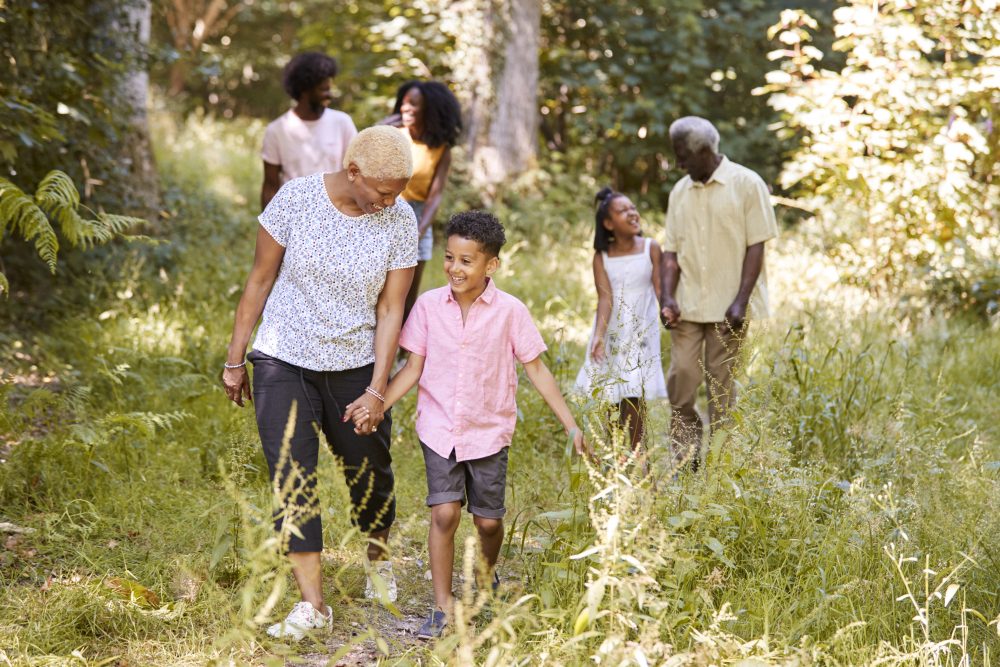6 Caregiver Tips for Summer

While it’s necessary for all ages to keep cool during the summer, seniors are more susceptible to heat-related medical concerns. It’s harder for older individuals to regulate temperature, and they may take medications that further distort temperature regulation, among other concerns. Caregivers can take note to employ certain senior care strategies to their loved ones remain comfortable. Below are safety tips for caregivers to keep in mind during the summer.
How to Ensure Senior Safety During Summer
1) Hydrate
As we age, our sense of thirst can diminish. Water is vital to maintain normal bodily functions, so it’s important for caregivers to monitor water intake in seniors. Follow the general rule of eight glasses of water per day so they will stay hydrated over the summer. Other great beverage choices include decaffeinated iced tea, juice, and milk.
Caregivers can also try fruit-infused water by adding berries or citrus fruit to a pitcher as well as herbs like mint or rosemary. Allow the mixture to settle in the fridge overnight before serving, or at least for four hours.
2) Check Medications
Ask your loved one’s pharmacist to review medications for any temperature or sun exposure warnings. Some medications cause skin to become more sensitive to sun exposure, or heighten side effects like drowsiness. Medications may also need to be stored in a cool place or refrigerated.
Moreover, consider setting a medication reminder to retain a consistent schedule.
3) Maintain a Consistent Temperature
“Seniors and people with health conditions don’t adjust easily to changes in temperature, so keep the temperature at home as consistent and comfortable as possible,” says Shawn Bennis, Program Coordinator at the Henry Ford C.A.R.E. (Caregivers Resources, Assistance and Education). This is because it’s harder for these individuals to regulate their body temperature due to factors such as decreased blood circulation and weakened sweat glands.
When possible, limit outdoor activities to before 10 am and after 4 pm to avoid intense sun exposure, especially in warmer climates. Try fun indoor activities that offer air conditioning to keep your loved one comfortable and safe such as watching a movie or playing board games.
4) Dress for the Weather
Check the daily forecast to guarantee your loved one will remain content. Recommend loose, light clothing to keep cool on warmer days. Bring a jacket, light outerwear, or even a blanket in case they feel cold, especially in air-conditioned spaces. Also, make a note of their clothing inventory by switching out unseasonal heavy jackets and winter wear.
5) Use Sun Protection
Help your loved one apply broad-spectrum, high-SPF sunscreen before leaving the house, and make certain they reapply throughout the day. Other sun protection such as hats and loose, breathable clothing benefits seniors as well. Consider fabric in lighter colors to reflect the sun’s heat rather than darker colors that absorb it.
6) Shield Your Eyes
Protective eyewear can guard your loved one’s eyes against harmful ultraviolet (UV) rays that can cause discomfort, dryness, or potential damage. The Mayo Clinic advises adults choose sunglasses with these factors in mind:
- Block 99% to 100% of both UVA and UVB rays
- Screen out 75% to 90% of visible light
- Lenses match in color and are free of distortions and imperfections
- Lenses are gray for proper color recognition
- Lenses are close-fitting and wrap around for ultimate protection





